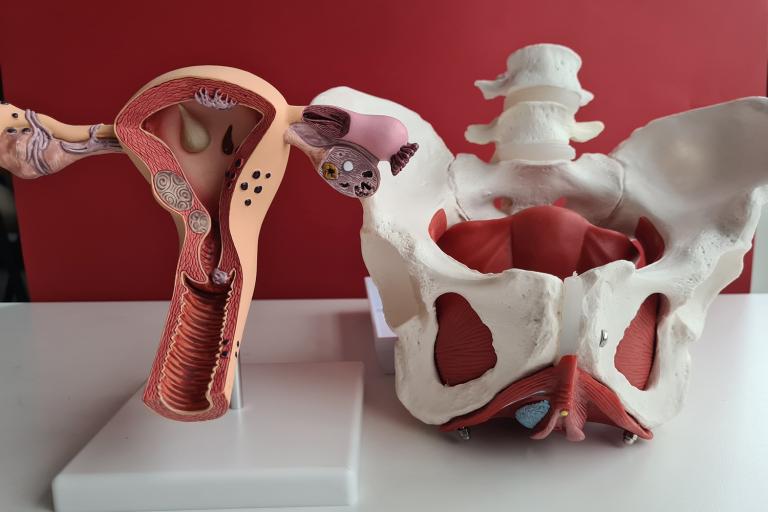You may not give much thought to your pelvic floor.
But consider whether you’ve had any of the following:
- urgent need to get to the toilet
- difficulty emptying your bladder or bowel
- pelvic pain, including during sex
- urine leakage when you:
- laugh
- exercise
- sneeze
- cough
Or perhaps you’ve had a diagnosis of pelvic organ prolapse (POP), a hernia that happens with weakening of the ligaments and muscles that hold the pelvic organs—uterus, bladder, rectum—in place.
Causes of Pelvic Floor Problems
Going back thousands of years, childbirth has been documented as a cause of POP. But it’s not the only cause.
Other risk factors:
- obesity
- family history
- growing older
- hysterectomy
...as well as chronic conditions that increase pressure in the abdomen, including:
Treatment for Your Pelvic Floor
Short of surgery, there are changes you can make to your diet and lifestyle to improve the condition of your pelvic floor.
-
Take Supplements
“Postpartum women who received a specially formulated postpartum recovery supplement had improved recovery of the pelvic floor after vaginal delivery,” wrote the authors of a report published in Obstetrics & Gynecology Sciences.
In addition to a prenatal vitamin, study subjects took a supplement formulated with zinc, leucine, and omega-3 fatty acids, all of which contribute to muscle strength and regeneration.
-
Avoid Constipation
Reduce straining when moving your bowels by eating a diet rich in fiber and staying well hydrated.
-
Increased Exercise
It’s not all about Kegels: several exercises help strengthen the pelvic floor easily, including lunges, yoga stretches, and breathing techniques.
But Kegels are important, too, since the contracting and releasing of the pelvic floor muscles strengthens them.
Contact a healthcare provider if you’re not sure if you’re doing them correctly.
-
Maintain a Healthy Weight
Obesity affects pelvic floor dysfunction. If you need help to lose weight, ask your healthcare provider.

